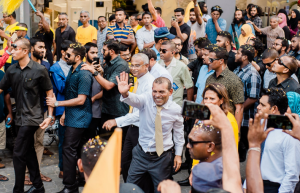Benefits of Social Media to Politics
The role of social media in politics has changed drastically since the internet first began to take off. Social media is now a powerful tool for politicians, parties, and movements to spread their message. It allows them to connect with voters personally that was impossible before. According to a Source, new media has been changing politics over time. Here, we will discuss some of the benefits that social media provides for political campaigns and how candidates can use it to communicate more effectively with their audiences.
Cost-Effective
The cost-effectiveness of social media is what makes it so attractive to politicians. It takes very little money for a campaign or political movement to establish an active presence on Twitter, Facebook, and Instagram. The benefits that these platforms offer far outweigh the costs required to use them. Before, campaigns were limited to television and radio advertising, which is very expensive. Social media allows candidates to reach a much larger audience for a fraction of the cost.
Personal Connection
 Social media provides a way for politicians to connect with voters personally. This connection is key to building trust and support from the electorate. Voters feel like they are more than just names and numbers on their voting records. Communication with voters through social media makes politicians seem more human, which is critical for any public figure or candidate. Social media also allows the electorate to voice their concerns directly to political figures in a way that will be heard by other like-minded individuals both within and outside of their country.
Social media provides a way for politicians to connect with voters personally. This connection is key to building trust and support from the electorate. Voters feel like they are more than just names and numbers on their voting records. Communication with voters through social media makes politicians seem more human, which is critical for any public figure or candidate. Social media also allows the electorate to voice their concerns directly to political figures in a way that will be heard by other like-minded individuals both within and outside of their country.
Transparency
Social media has also been credited with helping to promote transparency in politics. By providing a forum for open communication between politicians and voters. This transparency level can help build trust between the electorate and their political leaders. It can also help expose any wrongdoing or dishonesty on the part of politicians. By removing some of the barriers between politicians and their constituents, social media has allowed for a more authentic level of discourse in modern political campaigns.
Integrity
 Social media can also help to build trust within political movements by increasing transparency within different factions or groups. Social platforms allow supporters to share information openly and without fear of censorship. This type of communication can help to prevent the spread of rumors or misinformation, and it allows for a more honest assessment of the strengths and weaknesses of different groups. This kind of transparency is essential for any political movement that hopes to gain legitimacy with the public.
Social media can also help to build trust within political movements by increasing transparency within different factions or groups. Social platforms allow supporters to share information openly and without fear of censorship. This type of communication can help to prevent the spread of rumors or misinformation, and it allows for a more honest assessment of the strengths and weaknesses of different groups. This kind of transparency is essential for any political movement that hopes to gain legitimacy with the public.
As social media has evolved from a simple means of communication to the primary way people receive information, politicians have been challenged to adapt their strategies. We’ve discussed how political candidates can use social media as a campaigning tool and how they could ultimately benefit from incorporating it into their strategy. We hope you found these tips helpful. If not, feel free to reach out to us anytime for more help understanding what steps your organization needs to take next to succeed on social media platforms.
